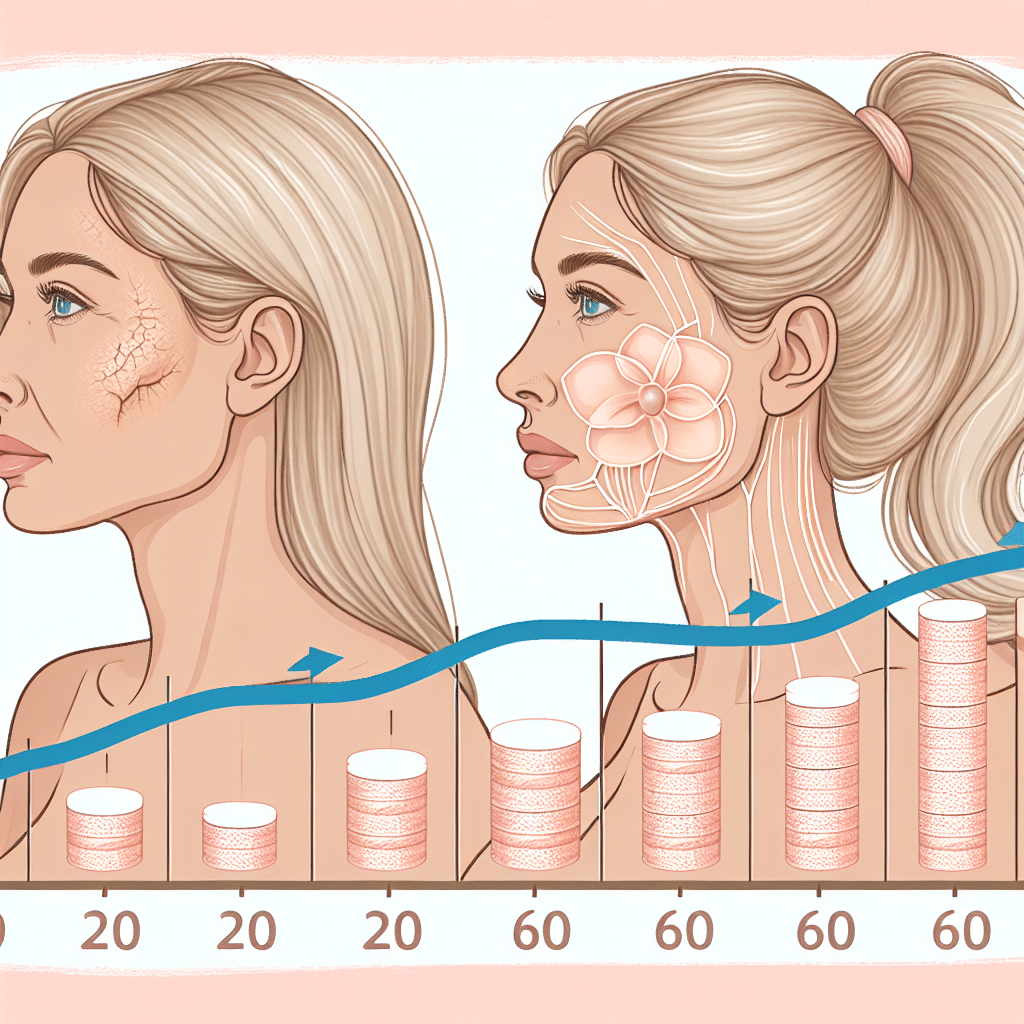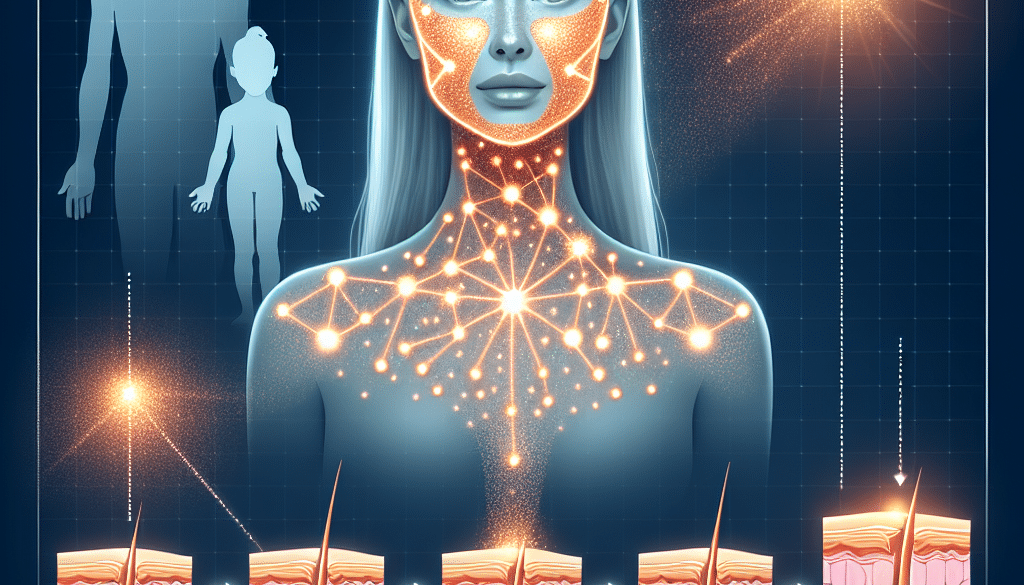At what age does a woman stop producing collagen?
-
Table of Contents
- Understanding Collagen Production Decline in Women
- Introduction to Collagen and Its Importance
- At What Age Does Collagen Production Decline?
- Genetic Factors
- Lifestyle Factors
- Environmental Factors
- How Hormonal Changes Affect Collagen Production
- Menopause and Collagen
- Strategies to Support Collagen Production
- Diet and Nutrition
- Lifestyle Modifications
- Supplements and Treatments
- Case Studies and Statistics
- Conclusion: Key Takeaways on Collagen Production in Women
- ETprotein: Enhance Your Collagen with Quality Protein Products
Understanding Collagen Production Decline in Women

Collagen is a vital protein that plays a crucial role in maintaining the structure and elasticity of the skin, as well as supporting other bodily tissues. As we age, our bodies naturally begin to produce less collagen, which can lead to signs of aging such as wrinkles, sagging skin, and joint pain. This article explores the age at which women typically experience a decline in collagen production and the factors that influence this process.
Introduction to Collagen and Its Importance
Collagen is the most abundant protein in the human body, making up a significant portion of our skin, hair, nails, and connective tissues. It provides strength and elasticity, contributing to the youthful appearance and function of our skin and joints. Understanding when and why collagen production decreases can help in developing strategies to mitigate the effects of aging.
At What Age Does Collagen Production Decline?
Collagen production in women begins to slow down as early as their mid-20s. By the time a woman reaches her 30s, the rate of collagen loss can accelerate, leading to visible signs of aging. However, the exact age at which this decline becomes noticeable can vary based on individual genetics, lifestyle, and environmental factors.
Genetic Factors
- Genetics play a significant role in determining the rate of collagen decline.
- Some women may experience earlier signs of aging due to hereditary traits.
Lifestyle Factors
- Smoking, poor diet, and high sugar consumption can exacerbate collagen loss.
- Excessive sun exposure without protection can damage collagen fibers and accelerate aging.
Environmental Factors
- Pollution and other environmental stressors can contribute to the breakdown of collagen.
- Chronic stress and lack of sleep can also negatively impact collagen production.
How Hormonal Changes Affect Collagen Production
One of the most significant factors in collagen production decline in women is hormonal changes, particularly during menopause. Estrogen is known to have a protective effect on collagen, and as estrogen levels drop during menopause, women may see a more rapid decrease in collagen synthesis.
Menopause and Collagen
- Menopause typically occurs between the ages of 45 and 55.
- The drop in estrogen levels during menopause can lead to a significant reduction in collagen production.
- Postmenopausal women may experience a 30% reduction in skin collagen within the first five years after menopause.
Strategies to Support Collagen Production
While the natural decline of collagen production is inevitable, there are several strategies that women can employ to support their collagen levels and maintain healthier skin and joints.
Diet and Nutrition
- Incorporating a diet rich in vitamin C, zinc, and copper can support collagen synthesis.
- Protein-rich foods, such as lean meats, fish, and legumes, provide the amino acids necessary for collagen production.
- Bone broth is a natural source of collagen and can be a beneficial addition to the diet.
Lifestyle Modifications
- Avoiding smoking and limiting sun exposure can help preserve collagen.
- Regular exercise can improve circulation and promote healthy skin.
- Proper skincare routines, including the use of retinoids and collagen-boosting products, can be effective.
Supplements and Treatments
- Collagen supplements have become popular for their potential to improve skin elasticity and joint health.
- Hyaluronic acid supplements can also support skin hydration and collagen.
- Professional treatments like laser therapy and microneedling may stimulate collagen production.
Case Studies and Statistics
Several studies have demonstrated the impact of various interventions on collagen production. For example, a study published in the Journal of Medical Nutrition and Nutraceuticals found that oral collagen peptide supplementation significantly improved skin hydration and elasticity in women aged 35-55 years. Additionally, statistics show that the global collagen market is growing, reflecting increased awareness and demand for collagen-enhancing products and treatments.
Conclusion: Key Takeaways on Collagen Production in Women
In summary, women typically begin to experience a decline in collagen production in their mid-20s, with significant changes occurring during menopause due to hormonal shifts. While genetics play a role, lifestyle and environmental factors are also influential. By adopting a healthy diet, protecting the skin from damage, and considering supplements and treatments, women can support their collagen levels and mitigate the effects of aging.
ETprotein: Enhance Your Collagen with Quality Protein Products
If you’re looking to support your collagen production through diet, ETprotein offers a range of high-quality protein products that can help. Their organic vegan proteins are an excellent source of amino acids, which are the building blocks of collagen. With options like rice protein, pea protein, and various seed proteins, you can easily incorporate these into your diet to promote healthy skin and joints.
About ETprotein:
ETprotein, a reputable protein and L-(+)-Ergothioneine (EGT) Chinese factory manufacturer and supplier, is renowned for producing, stocking, exporting, and delivering the highest quality organic bulk vegan proteins and L-(+)-Ergothioneine. They include Organic rice protein, clear rice protein, pea protein, clear pea protein, watermelon seed protein, pumpkin seed protein, sunflower seed protein, mung bean protein, peanut protein, and L-(+)-Ergothioneine EGT Pharmaceutical grade, L-(+)-Ergothioneine EGT food grade, L-(+)-Ergothioneine EGT cosmetic grade, L-(+)-Ergothioneine EGT reference grade and L-(+)-Ergothioneine EGT standard. Their offerings, characterized by a neutral taste, non-GMO, allergen-free attributes, with L-(+)-Ergothioneine purity over 98%, 99%, cater to a diverse range of industries. They serve nutraceutical, pharmaceutical, cosmeceutical, veterinary, as well as food and beverage finished product distributors, traders, and manufacturers across Europe, USA, Canada, Australia, Thailand, Japan, Korea, Brazil, and Chile, among others.
ETprotein specialization includes exporting and delivering tailor-made protein powder and finished nutritional supplements. Their extensive product range covers sectors like Food and Beverage, Sports Nutrition, Weight Management, Dietary Supplements, Health and Wellness Products, and Infant Formula, ensuring comprehensive solutions to meet all your protein needs.
As a trusted company by leading global food and beverage brands and Fortune 500 companies, ETprotein reinforces China’s reputation in the global arena. For more information or to sample their products, please contact them and email sales(at)ETprotein.com today.












